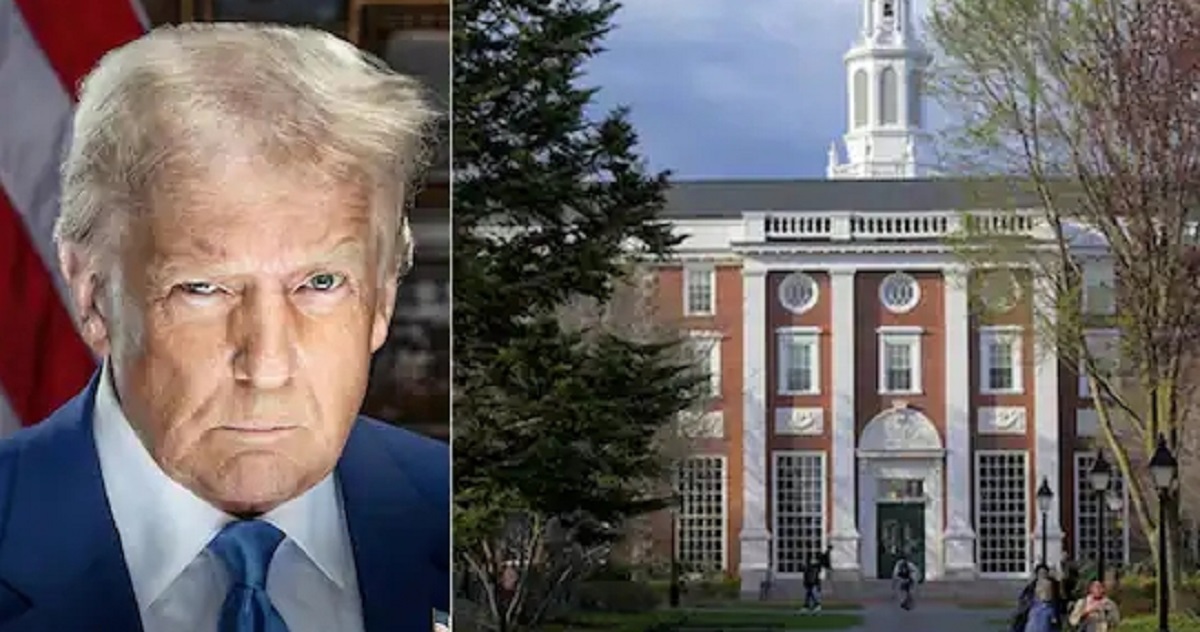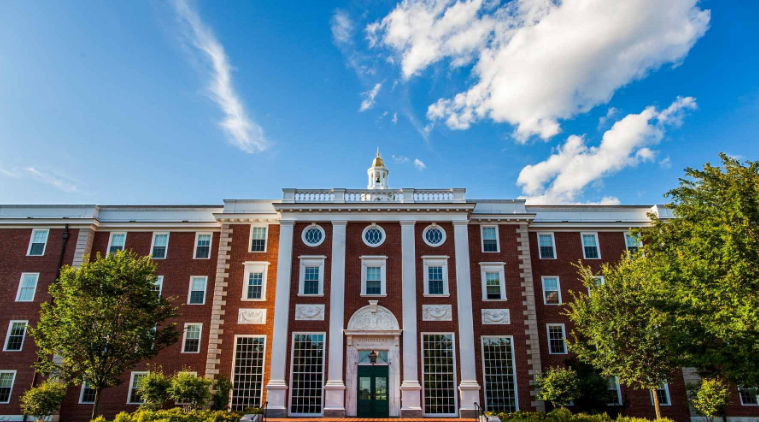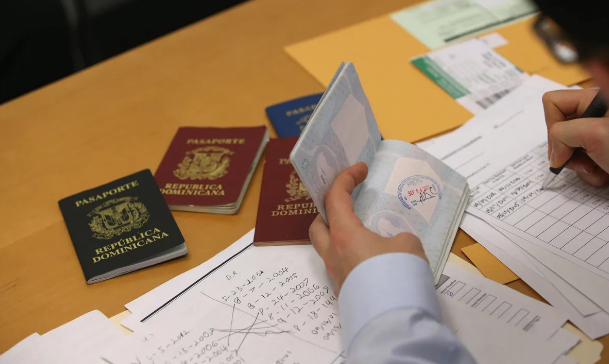Trump Administration Bans Harvard From Enrolling International Students
The Trump administration’s unprecedented decision to ban Harvard University from enrolling international students has reverberated across the academic world, intensifying a long-standing feud with eli

The Trump administration’s unprecedented decision to ban Harvard University from enrolling international students has reverberated across the academic world, intensifying a long-standing feud with elite institutions.
Announced by the Department of Homeland Security, this move revokes Harvard’s Student and Exchange Visitor Program (SEVP) certification, compelling approximately 6,800 international students—27% of the university’s student body—to transfer elsewhere or face deportation. This action, coupled with financial sanctions and demands for institutional reform, underscores a broader conflict over allegations of antisemitism, foreign influence, and ideological bias. As Harvard scrambles to respond and legal challenges mount, the implications of this policy extend far beyond Cambridge, threatening the fabric of American higher education and its global standing.
Harvard Banned From Enrolling Foreigners, Forcing Transfers

The Trump administration’s revocation of Harvard’s SEVP certification marks a seismic shift in its relationship with the Ivy League giant. This certification, a prerequisite for hosting students on F-1 and M-1 visas, has been stripped from Harvard due to what the administration calls a failure to maintain a safe and ideologically balanced campus.
According to the Department of Homeland Security, “Harvard’s leadership has created an unsafe campus environment by permitting anti-American, pro-terrorist agitators to harass and physically assault individuals, including many Jewish students.” As a result, the university’s international students must now seek enrollment at other SEVP-certified institutions to preserve their legal status in the U.S.
This decision compounds Harvard’s financial woes. The administration has already frozen over $2.6 billion in federal funding and halted future grants, citing the university’s handling of antisemitism and its alleged ties to foreign entities, notably the Chinese Communist Party (CCP). Homeland Security Secretary Kristi Noem has accused Harvard of coordinating with the CCP and hosting members of the Xinjiang Production and Construction Corps (XPCC), a sanctioned organization linked to human rights abuses. “It is a privilege, not a right, for universities to enroll foreign students,” Noem declared, suggesting that compliance with demands for transparency—such as submitting disciplinary records and protest footage within 72 hours—could restore Harvard’s certification.
Harvard, with its $53 billion endowment, faces immediate operational challenges despite its wealth. Much of this endowment is restricted for specific uses, leaving the university to redirect $250 million of its own funds to sustain research on critical issues like tuberculosis and ALS. The administration has also threatened to revoke Harvard’s tax-exempt status, a move the university warns could devastate higher education nationwide. In response, Harvard has labeled the ban “unlawful” and initiated lawsuits against federal agencies, while President Alan Garber appeals to alumni for emergency donations to bridge funding gaps.
The broader context of this conflict stems from escalating tensions over campus culture. Following the October 7, 2023, Hamas attack on Israel, pro-Palestinian protests at Harvard drew scrutiny for alleged antisemitism, prompting the administration to demand reforms in governance, admissions, and faculty hiring to enforce “viewpoint diversity.” Critics, including former Obama official Robert Shireman, decry this as an assault on academic freedom, arguing that it stifles the exchange of ideas and imposes government overreach on universities.
The economic fallout extends beyond Harvard’s walls. International students bolster Massachusetts’ economy through tuition, local spending, and post-graduate contributions to industries like biotech and healthcare. Noem’s warning that other universities could face similar bans has heightened anxiety across the sector, signaling a potential reshaping of America’s higher education landscape.
U.S. Blocked From Revoking Visa Status of Foreign Students

Amid the turmoil at Harvard, a California federal judge has delivered a counterblow to the Trump administration’s broader immigration crackdown. U.S. District Judge Jeffrey White issued a nationwide injunction barring the administration from summarily revoking the legal status of international students.
This ruling, distinct from Harvard’s institutional ban, focuses on protecting individual students whose records were terminated in the Student and Exchange Visitor Information Systems (SEVIS) database—a move the administration justified as targeting those with criminal records.
Judge White’s order mandates individualized reviews and adherence to federal regulations before any student’s status can be revoked, halting what challengers called an “arbitrary and capricious” mass cancellation. The decision prevents arrests, detentions, or deportations based solely on SEVIS terminations, offering temporary reprieve to thousands of students nationwide. “It is unclear how this game of whack-a-mole will end unless defendants are enjoined from skirting their own mandatory regulations,” White wrote, criticizing the administration’s attempts to evade judicial oversight by reinstating some statuses amid lawsuits.
This legal victory stems from separate challenges to the administration’s earlier SEVIS terminations, which swept up students without clear justification. While the Harvard ban addresses institutional certification, White’s ruling safeguards students’ rights regardless of their university’s status. For Harvard’s affected students, this means that even as they navigate transfers, their individual visa statuses cannot be abruptly nullified without due process.
The interplay between these developments highlights a fractured policy landscape. While the administration presses its case against Harvard—demanding transparency and alleging foreign collusion—the judiciary has curbed its ability to enact sweeping student deportations. This tension underscores the stakes for international education, with economic and academic ramifications hanging in the balance.
Conclusion
The Trump administration’s ban on Harvard enrolling international students has ignited a firestorm, pitting national security concerns against the principles of academic autonomy. For Harvard, the loss of SEVP certification, coupled with frozen funds and existential threats to its tax status, jeopardizes its global prestige and financial stability. Meanwhile, Judge White’s ruling offers a lifeline to individual students, curbing the administration’s broader immigration crackdown. As legal battles unfold, the outcome will shape not only Harvard’s future but also the role of international students in America’s academic and economic ecosystem. Caught in this clash, the ideals of open inquiry and institutional independence face an uncertain test, with ripple effects poised to redefine higher education for years to come.
Disclaimer: The views in this article are from the original Creator and do not represent the views or position of Hawk Insight. The content of the article is for reference, communication and learning only, and does not constitute investment advice. If it involves copyright issues, please contact us for deletion.